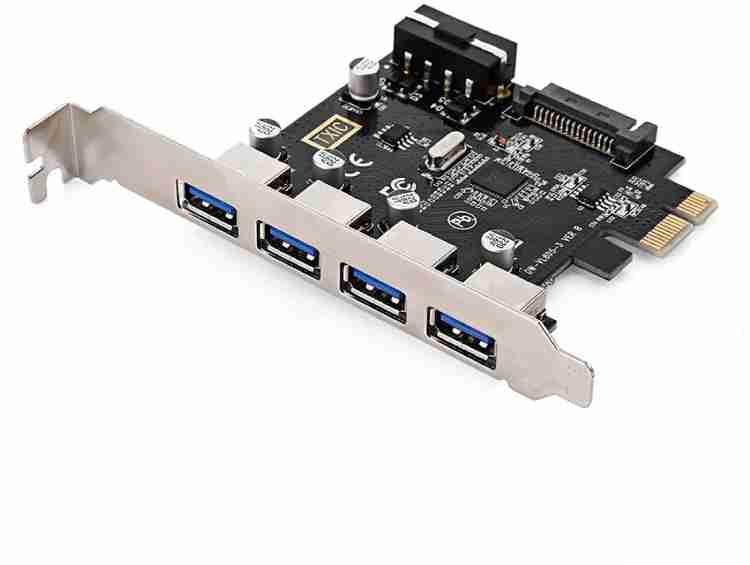Description
A PCIe (Peripheral Component Interconnect Express) Expansion Card is a hardware device designed to expand the capabilities of a computer by providing additional connectivity options and functionality. It is typically inserted into the motherboard of a computer system through a PCIe slot, which allows for high-speed data transfer and low latency communication with the CPU and other components.
These expansion cards come in various forms and serve diverse purposes, such as:
- Network Interface Cards (NICs): Used to add Ethernet or Wi-Fi connectivity to a system, enhancing networking capabilities for faster data transmission and reliable connectivity.
- Graphics Cards (GPUs): Essential for boosting graphical processing power in gaming rigs, workstations, and servers, enabling high-resolution displays, complex simulations, and efficient rendering.
- Storage Expansion Cards: Offer additional storage options beyond the motherboard’s built-in capabilities, including SSDs (Solid State Drives) or RAID (Redundant Array of Independent Disks) controllers, enhancing data storage and retrieval speeds.
- Sound Cards: Improve audio quality and provide advanced audio processing features for gaming, multimedia editing, and professional audio production.
- USB Expansion Cards: Increase the number of USB ports available to connect peripherals like keyboards, mice, external drives, and other devices, facilitating seamless connectivity.
- Specialized Interface Cards: Cater to specific needs such as video capture, industrial control, cryptographic acceleration, or scientific computation, leveraging PCIe’s high bandwidth and low latency for optimal performance.
The PCIe standard, characterized by its scalable bandwidth and versatile slot configurations (x1, x4, x8, x16, etc.), ensures compatibility with a wide range of devices and allows for future expansion as technology advances. By utilizing PCIe expansion cards, users can customize their systems according to their requirements, whether for gaming, professional applications, data management, or networking, thereby optimizing performance and functionality.








Reviews
There are no reviews yet.